2009 Exchange
MAB Offers Tour of Australian and New Zealand Agribusinesses
Fledgling Agribusiness Thrives Amid Economic Downturn
2009 Distinguished Alumnus Focuses on Relationships
Internships Prepares Wyatt Rundel for Tough Job Market
KFMA Provides Couple with Resources for Business Success
Professor's New Book Examines Seed Markets
![]()
Greetings from the Department Head, Dave Lambert
Dear Friends of K-State Agricultural Economics,
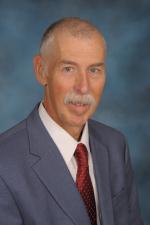 My name is Dave Lambert. I joined Kansas State this past July as the new department head in Agricultural Economics. Before joining K-State, I spent over ten years in Fargo at North Dakota State University. While in North Dakota, I served as department chair in Agribusiness and Applied Economics from 1998 to the middle of 2007, then stepped down to re-energize my teaching and research skills for two years before coming south to Manhattan.
My name is Dave Lambert. I joined Kansas State this past July as the new department head in Agricultural Economics. Before joining K-State, I spent over ten years in Fargo at North Dakota State University. While in North Dakota, I served as department chair in Agribusiness and Applied Economics from 1998 to the middle of 2007, then stepped down to re-energize my teaching and research skills for two years before coming south to Manhattan.
I enjoy teaching and research. However, I am honored to have been selected as the department head at K-State. There are many rewards of serving as a department head. Consistent with K-State’s status as a Land Grant University, the rewards can arise from the successes of our faculty, staff, and students in furthering the three missions of the institution: teaching, research, and extension. I will focus on teaching in this first note.
Nearly 350 undergraduate students have selected Agricultural Economics or Agribusiness as their majors. Our responsibility is to ensure these students have the opportunity to master the analytical skills necessary to excel in their future careers, either foreseeable or in future jobs that we cannot even imagine. Even more important than mastering currently known skills is to engender in our students the capacity and desire to continue learning throughout their lives. Graduation does not mark the end of learning.
Our undergraduate programs are successful. In order to continue offering programs and classes that meet our students’ and their employers’ needs, we have begun a review of the undergraduate program. The undergraduate committee and I have met several times this fall to review classes and programs. We have identified those concepts (Student Learning Outcomes) we feel our students should master by the time they graduate. Naturally, supply, demand, how markets work, and other economic principles made the list. In addition, we added international trade, globalization, economic development, and environmental issues among those topics our students must understand in order to thrive in their careers, as well as contribute to informed choices we all must make as citizens. Our goal is to ensure that all of our graduating seniors have mastered the Student Learning Outcomes considered essential for graduates in agricultural economics and agribusiness.
Our graduate programs continue to thrive. Enrollments in the M.S. and the Ph.D. programs are up by about a third this year over last year. Even more important than the increase in numbers is the continuing level of academic excellence our students are bringing to their studies. For example, K-State’s Agricultural Economics Ph.D. program has a long tradition of placing students in academic position around the U.S.
This reflects the reputation the program has for providing rigorous training in economics and in applications of economic theory and methods to problems in agriculture, food, natural resource and environmental economics, and in economic development. We are placing emphasis this year on our graduate students participating this coming summer in the various sessions and competitions at the Agricultural and Applied Economics Associations annual meetings. Being involved in these professional meetings gives our students a better understanding of what it means to be a professional agricultural economist.
The Master of Agribusiness program continues to meet the graduate level business and economics training of agribusiness professionals as they continue their careers. I was fortunate to attend the MAB conference in Kansas City this past August, and enjoyed the quality of the discussions among academics, industry specialists, and MAB alums regarding climate change, commodity markets, and macroeconomic conditions, among other topics.
All of you are aware of the dedication of our faculty and staff in working with students to make sure they master the hard stuff, but also that they are well-prepared to be successful in their careers and in their lives. Although I’ve emphasized how seriously we take our responsibilities to provide high quality education to our undergraduate and graduate students, I must also say we have excellent raw materials with which to work. Our students (and in many cases your kids) are great. It is a pleasure to work with these smart, engaged, and motivated young people!
K-State MAB offers tour of Australian and New Zealand agribusinesses
Kansas State University’s Master of Agribusiness (MAB) program is offering travel to the “land down under” to learn about the food and agriculture industry in the Oceania region. The trip will include stops in Auckland, Christchurch and Queenstown, New Zealand and Sydney, Canberra and Brisbane, Australia. The tour is scheduled for April 16 – May 1, 2010 and is open to anyone with an interest in international agribusiness. Close to 30 individuals have committed to joining the group, but there is space for a few more.
This agribusiness tour includes stops at cattle, deer and sheep farms, dairies, fruit and vegetable farms, grain and cotton farms, as well as, agricultural and food related industries. Participants will have the opportunity to spend time with a local farm family during an overnight farm stay in Australia. Time will also be set aside for site seeing.
Allen Featherstone, Agricultural Economics Professor and Director of the Master of Agribusiness program, feels the study tour offers a great opportunity for North American decision makers in food and agriculture to look at major competitors in grains, beef and dairy, as well as a differing view on government subsidies and cooperatives.
“New Zealand is unique because of the country’s decision to eliminate government support programs for agriculture; this has lead to innovation by the country’s agricultural producers, often through cooperative enterprises,” Featherstone said. “Australia offers a diversity of agricultural enterprises anywhere from beef and wheat production to subtropical agricultural production of fruits and vegetables.”
Previous international trips hosted by the Master of Agribusiness program have been to South America, Russia, and Southeast Asia.
“I enjoyed the MAB agricultural tour of Southeast Asia—I especially enjoyed the mix of farms and industry related tours, getting off the beaten path, yet seeing all of the tourist destinations. I personally feel this travel opportunity strengthens my own education about food and agribusiness management as it pertains to the global aspects abroad, yet provides cultural insights... I know the trip to Australia and New Zealand will provide the same opportunity and am looking forward to it,” Leslie Svacina, Communications Director, Minnesota Agri-Growth Council, St. Paul, Minn. said.
K-State’s Master of Agribusiness is an award-winning, distance-education degree program that focuses on food and agribusiness management. Students and alumni work in every sector of the food and agribusiness industry and are located in more than 35 states within the United States and in 25 countries.
Fledgling agribusiness thrives amid economic turndown
For many new businesses across the United States, the past year has been a difficult environment in which to survive, let alone grow. But for SureFire Ag Systems, which celebrated its two year anniversary this July, the current economic environment is the perfect time for expansion.
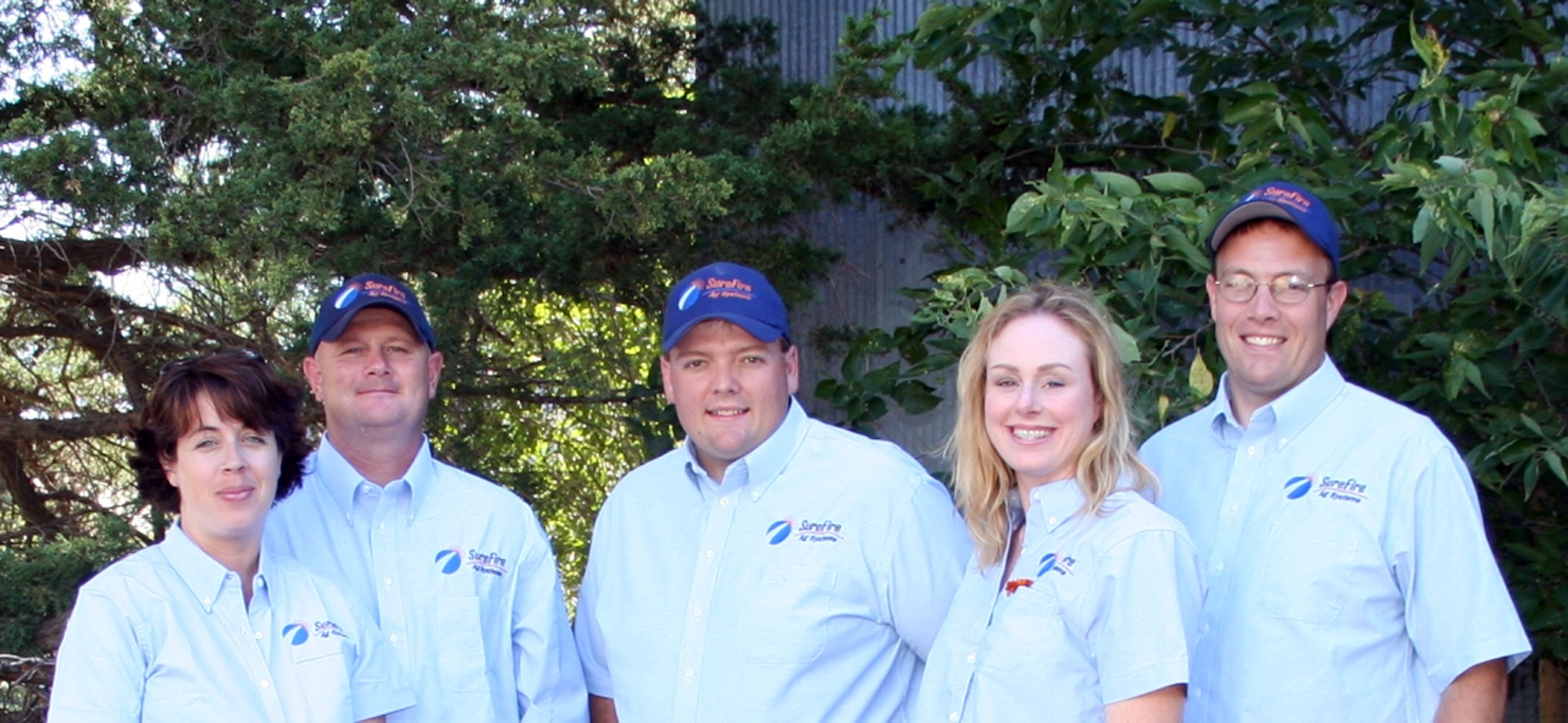 Based outside of Atwood, Kansas, Matt Wolters, agricultural economics ’03, his brother, Josh Wolters, and friend, Blaine Ginther, opened Surefire Ag in 2007. SureFire’s primary focus is to integrate technology to find agricultural solutions for producers.
Based outside of Atwood, Kansas, Matt Wolters, agricultural economics ’03, his brother, Josh Wolters, and friend, Blaine Ginther, opened Surefire Ag in 2007. SureFire’s primary focus is to integrate technology to find agricultural solutions for producers.
According to the U.S. Small Business Administration fifty percent of businesses close within their second year. Wolters suggests beating the odds has been accomplished through collaboration, hard work and a fair amount of good fortune.
“In the past two years, we’ve done business in 41 states, three provinces of Canada, and just shipped our first order to the Philippines. We’ve been fortunate to find opportunities,” Wolters said.
For Wolters, owning his own business was always a dream.
“The whole concept of starting a business is something we talked about for years. The fashion in which it happened I would never have been able to predict, but it’s the kind of opportunity you can’t deny. It’s a situation of right place, right time, and the right people to get it started,” he said.
THE BUSINESS TRIFECTA
The component of ‘right people’ for SureFire begins with its three business partners. Josh Wolters, an engineer by trade, desired to move beyond large corporate structure and be closer to home. Blaine Ginther’s background has included positions in management and sales, and Matt Wolters, focuses on operations and strategic marketing.
“In our experience, having a business idea is where it starts, but having someone you can rely on is crucial. If I was responsible for 100% of the business, the overall stress would be too intense. With partners, it allows us to function from a skill-set basis and each of us brings different abilities to create a strong core for success,” Wolters said.
For the three owners, their partnership has provided strength to ride out the inevitable start-up challenges.
“As we found out, financing for a small business is very difficult. We talked with several bankers and finally found one willing to go through the process for a guarantee on the loan,” Wolters explained. “It was a stressful process. At the onset we didn’t sleep, we just tried to scrape up every ounce of business, so it would cash flow. We had to approach every day with the mentality of selling hard and working face-to-face relationships.”
Developing relationships through good communication has been a key to expanding SureFire’s customer base.
“The greatest factor that has allowed us to be successful is the relationships we’ve built with our clients. They depend on us to solve problems, and we’ve tried to give them not only solutions, but exceed their expectations through communication and service,” Wolters said.
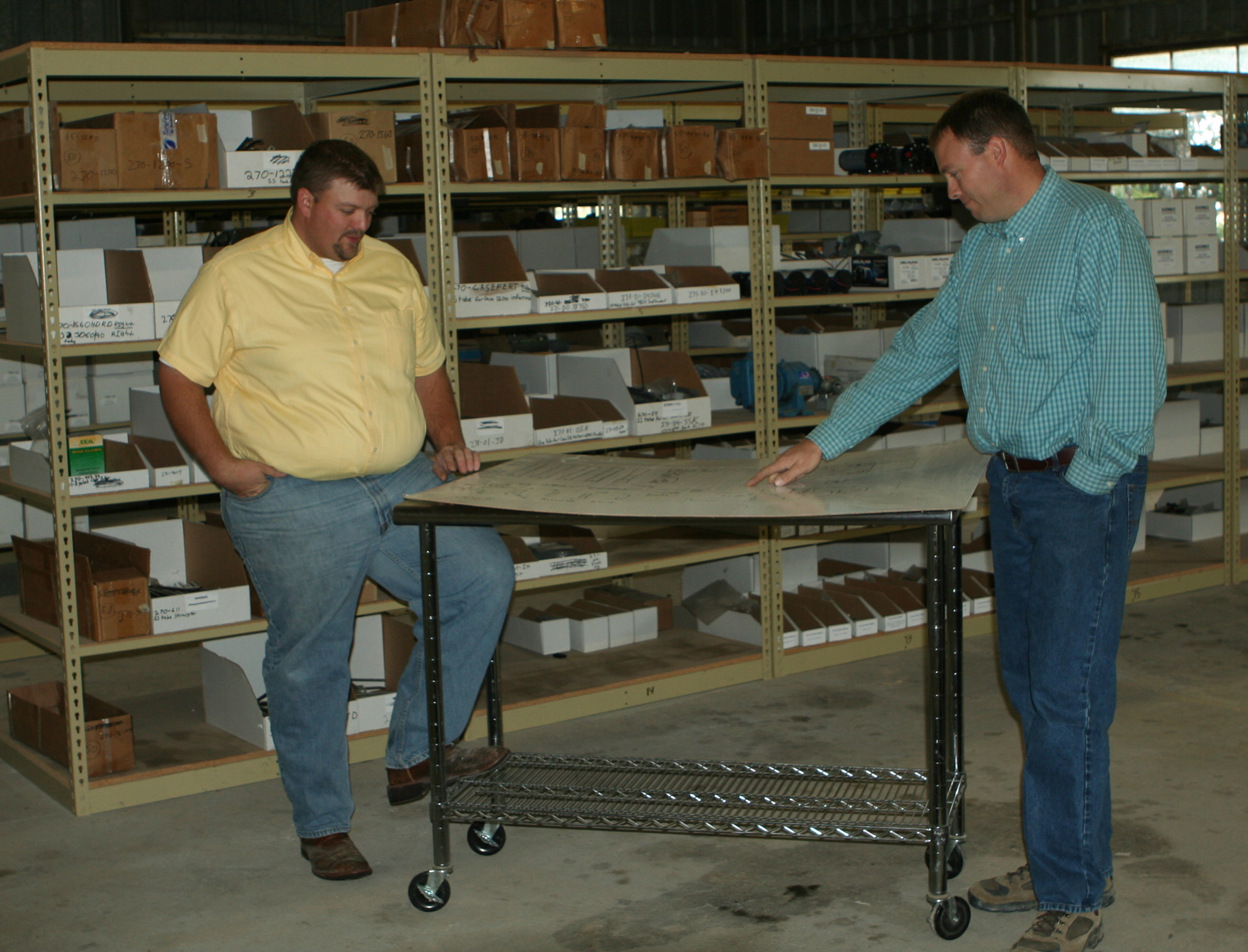 OPEN-BOOK MANAGEMENT
OPEN-BOOK MANAGEMENT
Good communication with customers begins with clear and honest communication with employees.
“We practice open book management here, there aren’t any financial secrets. We try to have a staff meeting each Monday and the profit-loss statement and the balance sheet is evaluated by everyone in the business. From a financial standpoint, regardless of the employees’ role in the business, they understand what makes the business profitable,” Wolters explained.
This type of open book management creates buy-in at every level. When SureFire needed to invest in a business system that would manage their accounting and inventory, employees understood the investment would allow them to be more efficient, and therefore more profitable.
“Any friction a large business investment may have caused was eliminated because each employee understood where the decision fit relative to the bottom line of the business,” Wolters said.
RETURNING TO THEIR RURAL ROOTS
As SureFire endeavors to provide a high standard of living for it’s employees, Wolters counts it’s rural location as a benefit and not a detriment.
“When we talked about the geography of the business, we could only list positives. We want to bring our kids up in a small town with a great community atmosphere, Atwood fit that perfectly. In addition, we want SureFire to be a responsible, contributing community-focused business,” Wolters said.
With that goal in mind, SureFire has sponsored the Atwood little league program and helped to broadcast high school sports.
“We believe there are qualified professionals, just like us, looking for opportunities to return home to their rural roots, but they don’t want to return to minimum wage jobs. We want to provide meaningful employment opportunities that in turn will enhance the local economy,” he said.
Wolters believes continued success for SureFire hinges on the strategic decisions they make now and in the near future.
“Every corner we turn in this business, we’re finding more opportunities, whether it’s a specific piece of equipment or new geographical area to explore. We’ve been consistently presented with opportunities, but there are only so many dollars and people that we can give to make them successes. Learning how to choose between them and grow wisely is our current challenge,” Wolters said.
Considering the general economic environment, it’s a challenge these fourth generation Rawlins County natives are happy to have.
“We’re going to create a business that is competitive with any business in the country, and do business all over the world.”
2009 Distinguished Alumnus focuses on relationships to achieve business success
The influence of the 2009 Department of Agricultural Economics Distinguished Alumnus, Charles Munson, agricultural economics ‘65, reaches far beyond his ranch nestled in the Flint Hills on the outskirts of Junction City, Kansas. His career is evidence, not only of his success in business, but of countless lives affected for good by a man dedicated to individuals involved in agriculture, education, and his community.
“My great-grandfather came to the region looking for opportunities. He found them first as a stone mason, then as a farmer,” Munson said. “His traditions like hard work, persistence and investment in people have been a benefit to all his family, and especially me as I’ve tried to uphold them.”
Munson grew up working for his father and uncle. Their thriving partnership, built on fertile land and an Angus cattle herd, provided Munson with ample learning opportunities.
“From the time I could see over the steering wheel, I was farming and feeding cattle. At a young age I knew two things: I was going to work hard and I was going to K-State. Almost every weekend in college, I would come home to work on the farm and build up my cow herd. I suppose that’s when my life became so intertwined with K-State, now you can’t separate them,” he chuckled.
With his degree in agricultural economics in hand, Munson returned to work as an employee for the family business. His first career milestones came in 1968 when Munson made two foundational decisions; he married Deanna, an independent woman with a strong desire to be successful, and bought his first 400 acres. Over the years they created several successful multi-faceted operations which now revolve around a 200-head registered Angus cow herd , 5000 acres of pasture and diversified crops, and the direct-marketing of their Premium Angus Beef both online and at a retail store in Junction City, Kansas. A recent addition to his business interests came after he received a beautiful matched team of Percheron draft horses from his family as a birthday present. Now their Black Horse Hitch LLC., pulls carriages at parades and special events and has opened the doors wide to agri-tourism.
Deanna Munson, ‘65, ‘67, ‘80, is quick to point to her husband’s total commitment to the job at hand as the reason for his achievements.
“Being successful at his job could not have been done without an honest effort – on his part and everyone else’s,” Deanna said.
One hallmark of the business was a yearly activity Munson arranged for his crew and himself called “Character Building.” Rising early in the morning, a day full of picking up and stacking square bales awaited the group.
“If they lasted longer than half a day, he knew they would be good workers,” Deanna recalled.
One key to Munson’s business success was his effort to know those within his sphere of influence.
“Success breeds success. Over the years he’s invested in people and managed to find the best in them. We point out what they do well and encourage them to pursue it. There’s no point in complaining and griping, our expectation is you do what you can, and you do it well,” Deanna explained.
As a former employee, Walt Ney, operations manager at JBS United Feeds in Indianapolis, Indiana, frequently recalls “Chuck” Munson’s teaching as he leads and directs his own employees.
“Every part of my work ethic was developed working alongside Chuck throughout my formative years. He was the role model that I needed during that time in my life,” Ney said.
Ney began working for the Munson family after his mother sought advice on how she might keep her teenage son busy during the summer. Munson suggested Walt come to work part time on the ranch. Their working relationship provided not only the structure, but also the support Walt needed throughout high school and into college.
“To be honest with you, Chuck was a father-figure for me. He didn’t have to be, but he was. You didn’t have to ask for his advice, he was always there to give it. One of the first things I learned working for Chuck is that there’s a time to work and a time for play and they don’t mix,” Ney said.
Hard work served as a teaching tool for each of Munson’s employees. Ney remembers harvest time demanded grueling hours, each hired man was given one load of wheat as a bonus.
“The load would be put in our name and then he’d let us see how much money we could make. We had to follow the markets; the costs associated with it, and decide what we were going to do. Ultimately, whatever money we made was ours to keep, along with the skills we developed being responsible for it,” Ney said.
A good work ethic is one lesson Munson tried to impart to those around him, another is to be ambitious.
“Whatever road you go down there are setbacks and times you can be discouraged. Ambition is an underlying character quality that helps us get through those times,” Munson said.
Munson foresees a difficult time for production agriculture that will require a good dose of ambition to get through. He believes the distancing of agriculture from the general population is a challenge yet to be met.
“As the population changes we have less representation and fewer connections with the younger generations. They don’t understand agriculture, nor will they understand itsvalue unless we are actively involved in the process of education,” he said. “We need to be part of agriculture organizations to make our needs and desire known.”
For this reason Munson leads by example being a member of the Kansas Livestock Association and the Kansas Farm Bureau, serving as a trustee of the K-State Foundation, a director of KSU Alumni Association, first president and founder of Kansas Citizens for Extension Education, and past president of the Geary County Extension Council, among many leadership responsibilities in other organizations.
With his successful business positioned for the future Munson sees this time in his life as an opportunity to give back.
“I feel very fortunate to have a strong family heritage and an excellent education from K-State. There are times to receive and times to give back, we’re excited to be part of that process for many years to come,” he said.
![]()
The Confidence Factor: Internship readies student for tough job market
Everyone has heard of dreaded internships that consist of making coffee runs and copies. Ideally, students seek experiences that will give them insight into a potential career and add value to the companies for which they work.
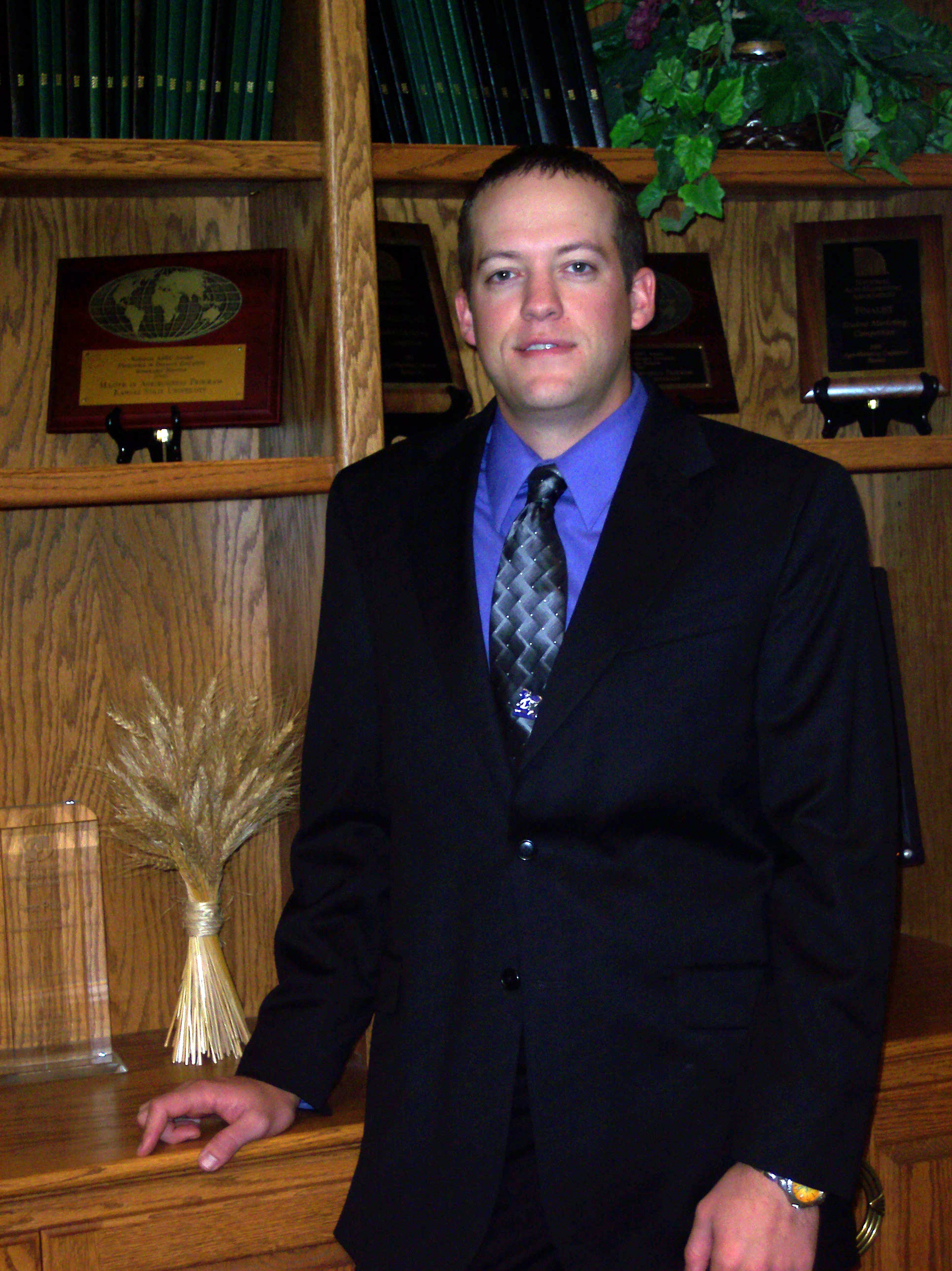 When Wyatt Rundel, senior in agribusiness, began his internship with CoBank he was pleased to find he wouldn’t be filing papers, instead his first afternoon in the office he found himself working on a multi-million dollar credit action.
When Wyatt Rundel, senior in agribusiness, began his internship with CoBank he was pleased to find he wouldn’t be filing papers, instead his first afternoon in the office he found himself working on a multi-million dollar credit action.
“I was looking to explore ag lending in my internship, and that’s exactly what I got. I had to hit the ground running and work efficiently because I was making deals that affected companies in the real world,” he said.
As an intern, Rundel was expected to immediately immerse himself in the operations of CoBank’s lending interests. His responsibilities covered a broad spectrum giving him the opportunity to see various aspects of the business.
“I began in the operations side of CoBank looking at various clients’ accounts and deciphering why there was a shift in profits or losses. It was an interesting and very detailed introduction to lending,” Rundel shared.
His internship also included participating in leadership meetings as they planned how to best serve their clients.
“I would sit in with management as they discussed high-attention clients. I don’t know how you get more ‘real life’ experience than to work on five to 150 million dollar loans and have a vote in the process. Obviously, I didn’t have much pull, but they still valued my input,“ he said.
Rundel’s work in relationship management gave him face-to-face contact with clients and helped him clarify his desire to pursue this area when he graduates in May.
“I traveled and checked-in with clients to see how business was going. Our goal was to communicate that CoBank’s there to serve them and partner with them in their endeavors. Sometimes if a business was struggling, we would analyze what was actually going on and see how we could make adjustments to ultimately improve the business,” he said.
Rundel emphasized that ‘relationship’ is the key word to describe his efforts as he interacted with clients.
“Like any type of interaction with people, as an intern, I would have to show people what I knew what I was talking about and had the ability to back up my words with positive results. It’s a process of building trust,” he added.
Rundel considers his internship with CoBank an excellent learning opportunity.
“CoBank has some great leaders who I will emulate throughout my career. One is Dennis Blick, as regional vice president, he shows a passion for his employees and his clients, and is a great role model to someone starting out in the industry,” Rundel said.
“Growing up on the farm, I never pictured myself in a cubicle working day in and out crunching numbers on accounts. The internship shed light on that fact that I need a balance between office work and interacting with people,” Rundel explained.
Returning to K-State this fall, Rundel finds himself approaching his class work differently.
“The break from school gave me the opportunity to see how I can use this information in the real world. I’m much more proactive in thinking about how the concepts we’re learning would apply in business and if I think they would work,” he said.
As he prepares for graduation in the spring, filling out job applications has occupied much of his time.
“I would love to work for CoBank when I graduate, but I want to be able to judge my fair market value effectively. I’m anxious to see what opportunities are available.”
The tough-job market isn’t a concern for Rundel. Ultimately, he is looking for his best fit, where he can add value to a company and be valued.
“I’m young and have got some great experience behind me. I’m willing to make sacrifices, and recognize I might have to do that to get my foot in the door,” he said. Not neglecting his farm upbringing, Rundel adds with a confident smile, “and it would be a great bonus to be somewhere where I can hit the gravel roads now and again.”
![]()
Kansas Farm Management Association provides couple resources for business success
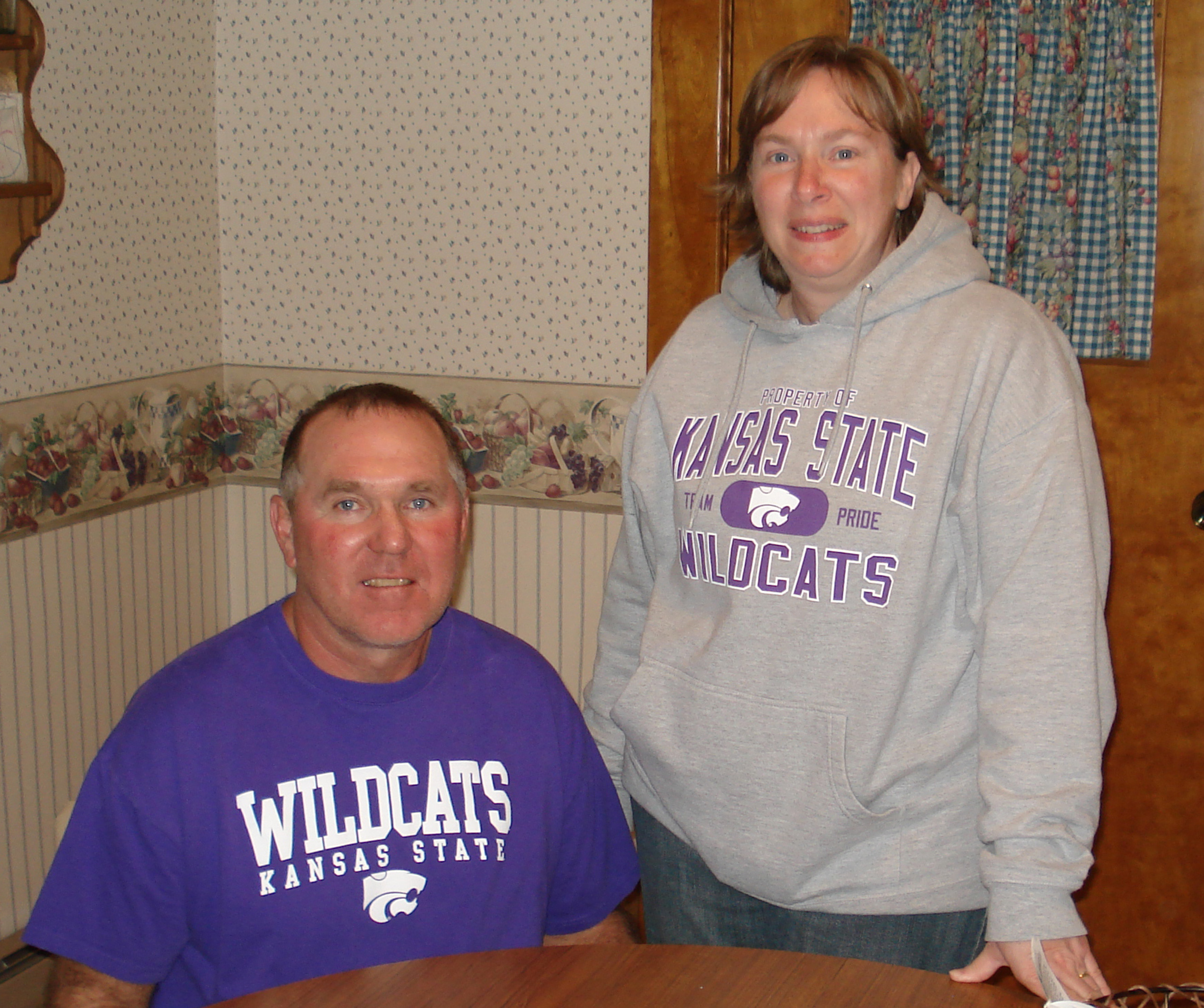 When Rod Strahm began renting ground with the goal of one day owning a diversified operation, an accounting notebook and a local CPA saw the fledgling operation through its first few tax seasons. Although he and his wife, Cynthia, were both raised on the farm, starting out on their own in the early ‘80s presented them, and many other farmers, with a tumultuous business environment. When a Kansas Farm Management Association fieldman stopped by, the Strahm’s recognized the benefits of utilizing the KFMA’s specialized resources.
When Rod Strahm began renting ground with the goal of one day owning a diversified operation, an accounting notebook and a local CPA saw the fledgling operation through its first few tax seasons. Although he and his wife, Cynthia, were both raised on the farm, starting out on their own in the early ‘80s presented them, and many other farmers, with a tumultuous business environment. When a Kansas Farm Management Association fieldman stopped by, the Strahm’s recognized the benefits of utilizing the KFMA’s specialized resources.
Fortunately, making wise decisions, the Strahm’s have built a life and business they can be proud of. As their operation has expanded to include a small feed lot, finishing hogs, row crops and hay, the Strahm’s relationship with the KFMA has remained a constant resource for expertise and advice.
Craig Althauser, the Strahm’s KFMA economist, says the Strahm’s operation is a model for many in Northeast Kansas.
“The Strahm’s have made and continue to make good decisions. They take available research and information and incorporate it into their operation. They always want to be better, and it’s been a great opportunity to partner with them,” Althauser said.
Cynthia, who does a majority of the book work for the operation, recalls joining the KFMA was a natural decision for her and her husband.
“Both of our parents were members of the KFMA for as long as we could remember, so it wasn’t difficult deciding whether or not to join. We knew it would be beneficial, and it has been from the start,” she said.
Since the ‘30s the Kansas Farm Management Association has served farmers and ranchers with an unreserved dedication, developing relationships with multiple generations along the way.
The KFMA program is comprised of twenty association economists, who are faculty members in the Department of Agricultural Economics. The economists work cooperatively with farm families to provide members with production and financial management information for use in decision making.
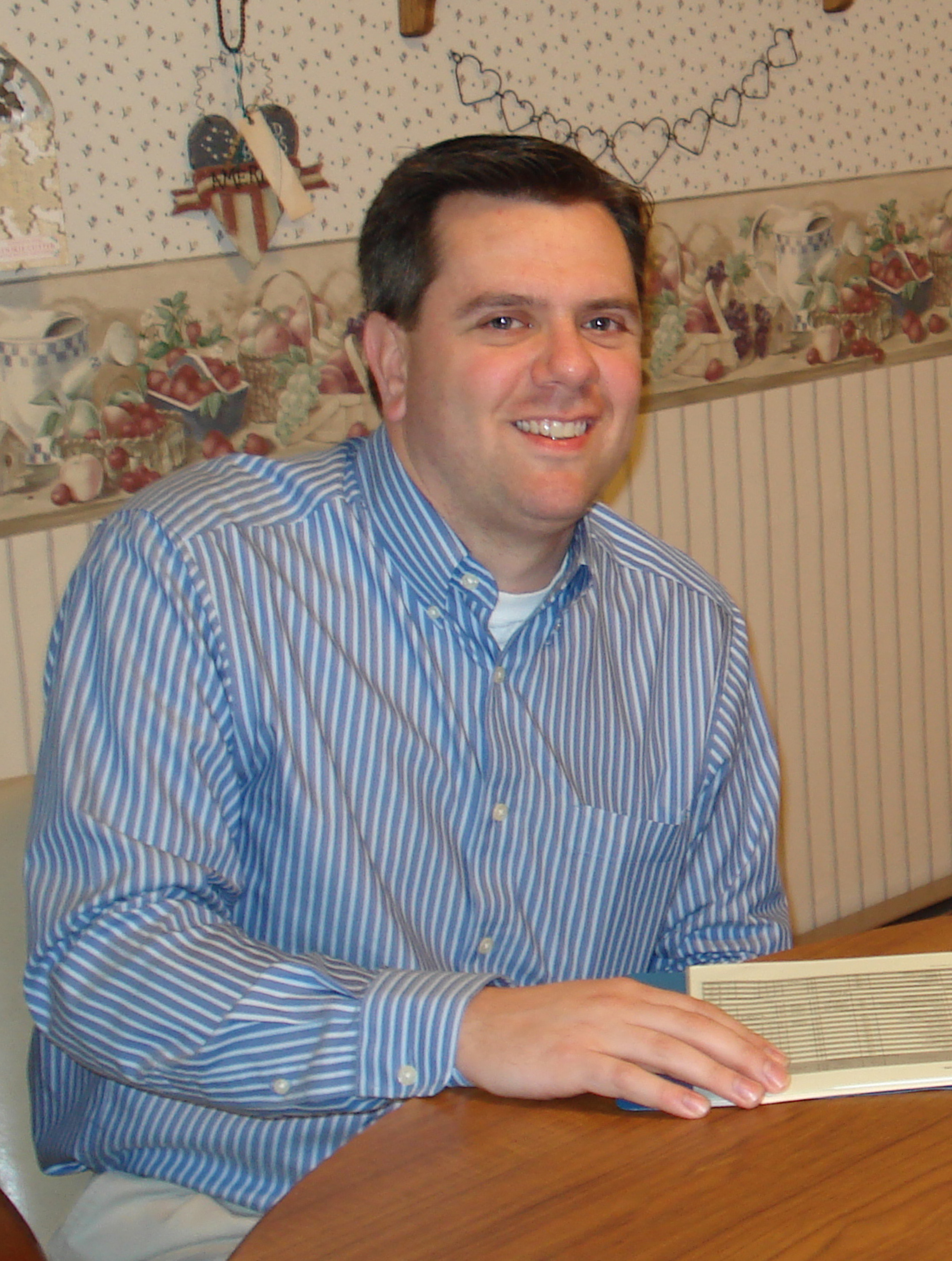 Over the years, the Strahm’s have sought Althauser’s advice with each land purchase they’ve made. Recently, the Strahm’s contacted Althauser with questions involving their health insurance.
Over the years, the Strahm’s have sought Althauser’s advice with each land purchase they’ve made. Recently, the Strahm’s contacted Althauser with questions involving their health insurance.
“We’ve always purchased our own health insurance, but as costs have increased we wanted to make sure we were well-covered in the most cost-effective manner. We talked with Craig and with his advice switched to an HSA plan,” she said.
In addition to the integrated tax planning, marketing and asset investment strategies the KFMA provides, the Strahm’s rely on yearly reporting about their specific operation.
“The KFMA keeps good, accurate records and always has reports available for us. When we renew our loans at the bank, they like that we have detailed information about our operation. If I have a question about where we stand, Craig is a phone call away and he’s always a good resource,” Cynthia said.
Through on-farm visits, whole-farm analysis, enterprise analysis, and other educational programs, Althauser, and the other KFMA economists are able to assist producers in not only developing farm accounting systems, but also comparing performance with similar farms.
“Being able to utilize a comparison with other similar farms helps us to be even more efficient. Craig can use the research and point out areas where we might need to change something. Tax services are great, but KFMA provides so much more to help us understand where we’re at and where we could be,” Cynthia said.
As Cynthia looks to the future, she sees a transition away from farming down the road.
“We have raised three kids and sent them off to college. At this point, we’ve had 30 successful years, but I don’t see that they’ll want to come back home and take over,” she said. “In 10-15 years, we will have rented out our farm and allowed some of the younger, local farmers in the area take on more land.”
As future changes come to light, Strahm will count on the relationship with the KFMA to provide important resources.
“There are tax consequences to everything, and I’m sure Craig will have the answers that we need at that point,” she said with confidence.
For more information on the KFMA, please visit www.agmanager.info/KFMA.
Professor's new book examines emerging seed markets
Timothy Dalton, professor agricultural economics, will see his labor of three years come to fruition this December in the publishing of his book, Seed Trade in Rural Markets Implications for Crop Diversity and Agricultural Development. The book, which studies how seed markets in emerging counties function, focuses on case studies from Bolivia, Kenya, Mexico, Mali and India. Each country was particularly selected because they are the location of genetic origin for each of the crops observed in the project.
Dalton collaborated with project leader, Senior Environmental Economist, Leslie Lipper from Food and Agriculture Organization of the United Nations based in Rome, Italy and Leigh Anderson, professor at the University of Washington. Dalton hopes the book will serve as a resource for development practitioners and for graduate-level agricultural development classes. In anticipation of the book’s publication, Dalton said the outcome is well-worth the effort,
“It’s satisfying to have the book done, and in looking back with some distance, it’s rewarding to read and think, this is actually pretty good”.
